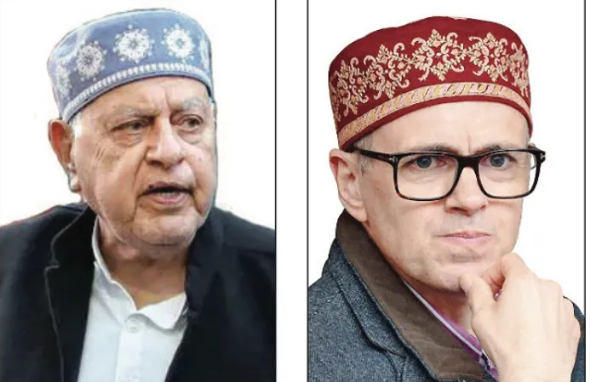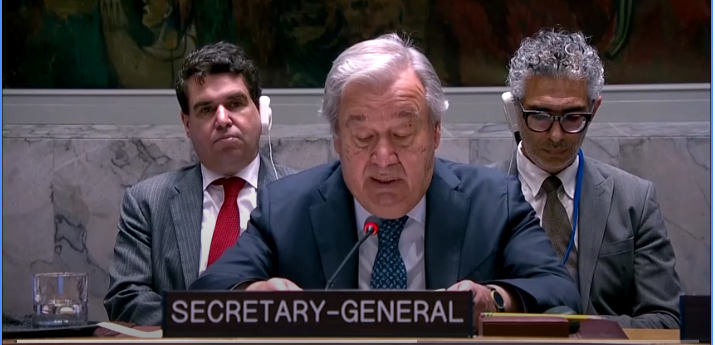
Farooq Abdullah Omar Abdullah
Prominent political leaders from Jammu and Kashmir, including National Conference vice-president Omar Abdullah and party president Farooq Abdullah, have expressed appreciation for the Indian government’s proactive efforts to evacuate Indian students stranded in Iran. Their remarks come amid escalating geopolitical tensions in the Middle East, which have raised security concerns for Indian nationals residing in the region.
Background: Escalating Crisis in the Gulf
The recent flare-up in hostilities between Iran and Israel has triggered alarm across the international community. With the U.S. launching retaliatory airstrikes and Iran vowing to respond, many nations, including India, have been scrambling to ensure the safety of their citizens in the affected areas.
According to reports from the Ministry of External Affairs (MEA), over 400 Indian nationals—primarily students—were stranded in various Iranian cities including Tehran, Mashhad, and Shiraz. Concerns had been growing about their safety due to the proximity of some of these areas to military bases and potential targets.
India’s Swift Diplomatic Response
The Government of India, through its embassies and consulates in Tehran and Bandar Abbas, launched an emergency evacuation plan under the coordination of the MEA. Working closely with Iran’s civil aviation authorities and leveraging backchannel diplomacy, India arranged special Air India and IAF flights to repatriate its citizens.
Within three days, three special flights landed in Delhi and Mumbai, bringing back nearly 350 students. Many of them hailed from Jammu and Kashmir, Kerala, Maharashtra, and Tamil Nadu.
In a joint statement, Omar Abdullah and Farooq Abdullah thanked the Centre for its “swift and sensitive” response in ensuring the safety of young students caught in a conflict zone. “We may have political differences at home, but on issues concerning national interest and the safety of our people abroad, we stand united,” Omar Abdullah said during a press briefing in Srinagar.
Political Reactions from Jammu and Kashmir
Farooq Abdullah, a veteran politician and Member of Parliament from Srinagar, remarked:
“We appreciate the Centre’s efforts. This was not just about logistics but also about maintaining calm and coordination with Iranian authorities under tense circumstances.”
He further urged the MEA to continue tracking the situation and offer psychological support to the students, many of whom returned with signs of trauma. “We must not forget that these are young minds who’ve just escaped a potential war zone.”
Voices of Relief: Students Share Their Experience
Several of the returning students shared their harrowing experience. A medical student from Anantnag, who requested anonymity, said:
“We could hear air-raid sirens at night and were told to keep indoors. The university authorities were helpful, but it was the Indian embassy staff who gave us real confidence.”
Another engineering student from Kulgam added:
“The coordination between local Indian communities and embassy staff was amazing. They ensured we had food, shelter, and clear instructions until the rescue.”
MEA Statement and Coordination with Iran
In a detailed statement, MEA spokesperson Randhir Jaiswal said:
“India values its longstanding civilizational ties with Iran. We were in continuous contact with Iranian authorities to facilitate safe corridors and ensure Indian nationals were not caught in the crossfire. Our embassy teams worked around the clock.”
Sources confirm that the Indian Air Force C-17 Globemaster aircraft were on standby for additional evacuations if the situation had worsened. Thankfully, no Indian casualties or injuries have been reported.
International Praise
The United Nations Office for the Coordination of Humanitarian Affairs (UNOCHA) also praised India for evacuating its citizens in a “timely and responsible” manner. Similar efforts have been undertaken by countries like Turkey, Bangladesh, and France.
Opposition Reactions: Bipartisanship Prevails
Congress leader Jairam Ramesh also joined in lauding the efforts, tweeting:
“Timely action by the Government of India in getting our students home safely. It’s reassuring to see a united stand on citizen safety.”
What’s Next?
As tensions remain high in the Gulf, MEA has issued a Level 3 travel advisory for Indian nationals, especially those considering travel to Iran, Iraq, or Lebanon. People have been urged to defer all non-essential travel and stay in touch with the Indian embassies.
Additionally, the Government of Jammu and Kashmir has announced a counseling initiative in coordination with SKIMS (Sher-i-Kashmir Institute of Medical Sciences) to provide trauma and psychological support to returning students.
Public Sentiment and Unity
On social media, hashtags like #WelcomeBackHeroes and #IndiaCares have trended, highlighting a moment of unity in the country. A video clip of Omar Abdullah meeting a group of returning students at Srinagar airport has garnered over 3 million views in 24 hours.
At a time when geopolitical tensions are at their peak and the region teeters on the brink of wider conflict, India’s timely and effective response has drawn praise from across the political spectrum. The safe return of students from Iran underscores the importance of active diplomacy, preparedness, and above all, a unified national approach to safeguarding citizens.
As Farooq Abdullah summed up:
“Today, politics takes a backseat. Today, India stands together.”
Sources:
Let me know if you want a featured image for this post or a meta description.


